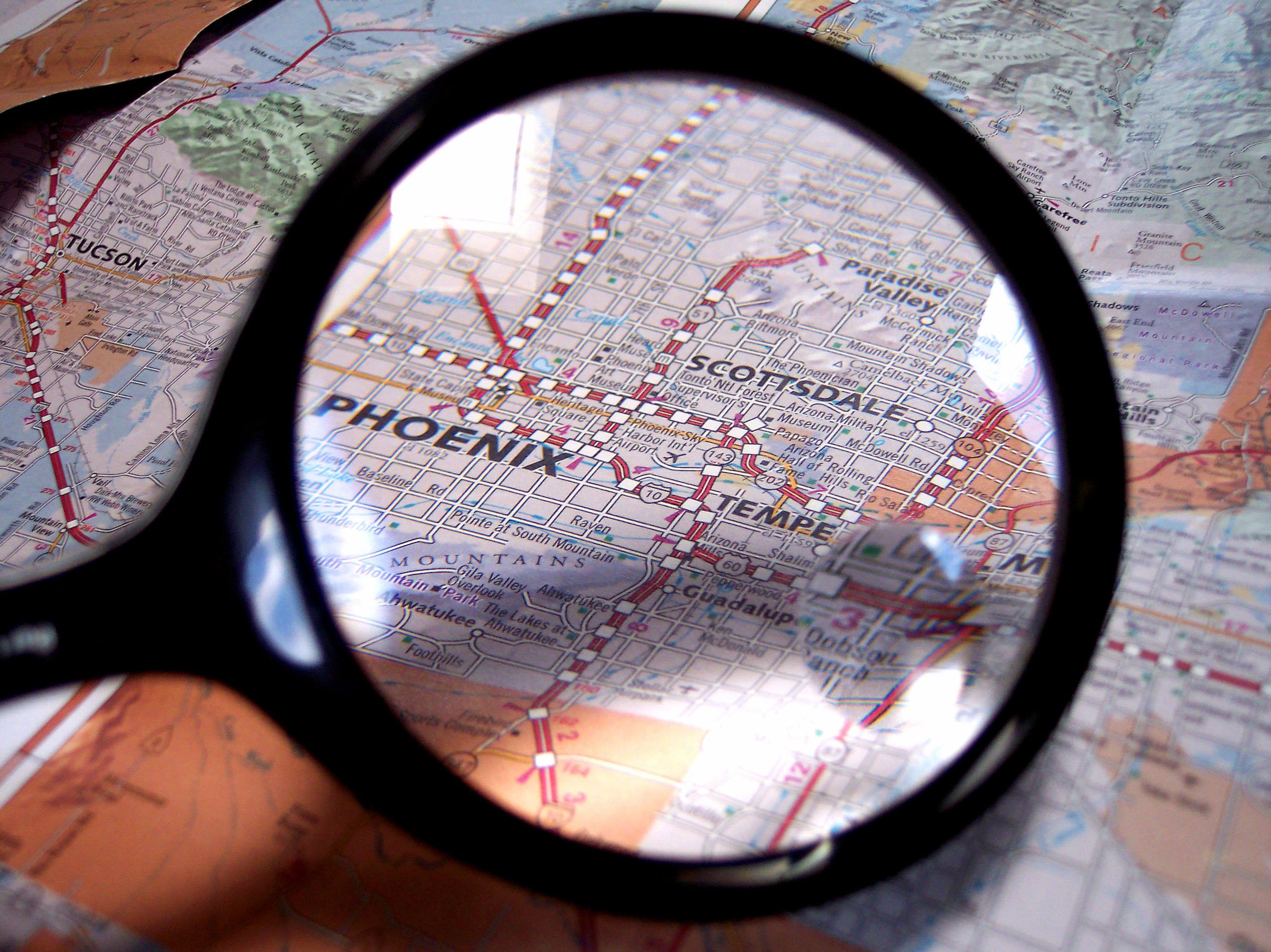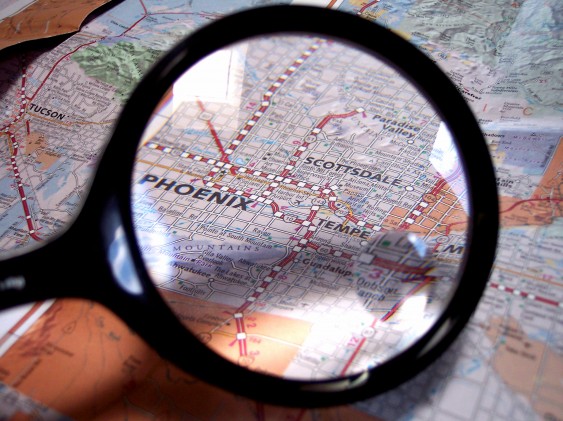We’ve heard it a million times: Talk about local climate impacts and local solutions to help shrink the sometimes overwhelming issue of climate change to actionable proportions. In the same vein, I know I sound like a broken record when I say: Stop talking about polar bears and “future generations!” To win hearts and not just minds, climate change needs to be understood in the here and now.
Well, now there’s more research to show that this is good practice.
Have you heard of the boomerang effect? It’s when a message has the exact opposite result it’s intended to. Previous studies showed that fear tactics on global warming—your so-called ‘gloom and doom’ stuff—actually triggered more denial of the science and/or decreased concern among some audiences.
A new study (forthcoming) by Sol Hart, School of Communication at American University and Erik Nisbet, a professor at Ohio State University (and Matthew Nisbet’s brother) warns of a similar boomerang effect when we focus on climate risks to people far away from us instead of risks to those who are nearby geographically and seem culturally “like us.” (The study participants were 240 upstate New Yorkers.)
Climate change is already (bizarrely, uniquely) a highly partisan issue for many in the US. That polarization seems to increase when climate change messages are about far away people being impacted:
Climate change campaigns in the United States that focus on the risks to people in foreign countries or even other regions of the U.S. are likely to inadvertently increase polarization among Americans rather than build consensus and support for policy action.
The good news and the promising finding for crafting better messages around climate and energy is that, by contrast, “locally focused campaigns that highlight the risks to fellow residents of a state or a city are less likely to activate strong partisan differences.”
Turns out that what communications researchers call “motivated reasoning“—something all of us do unconsciously all the time, that is, “selectively seeking out and interpreting information across issues in a way that reinforces existing political views” and in line with our existing ideologies—plus our “natural tendency to rely on social closeness or sameness as a short cut in making sense of a policy problem,” means that those who understand climate science and already report concern about the issue were more likely to identify with “victims” even if they were far away. Partisan affiliation played into this too. These folks tended to identify as Democrats. “In contrast, both Republicans and Independents indicated low social identification with the farmers as portrayed in the…socially distant condition.”
On the flip side, Republicans presented with information about the risks to geographically distant farmers were more likely to oppose policy action than their Republican counterparts in the control condition or in the local condition. In other words, “locally focused campaigns that highlight the risks to fellow residents of a state or a city are less likely to activate strong partisan differences.”
Also notable: “after controls, neither knowledge specific to climate change or general science literacy was significantly related to support for policy action.”
The study is a powerful reinforcement for our recommendations to “make it local.” The only weakness I saw was the researchers’ choice to use France as one of the locations for distant victims of climate impacts. What’s wrong with France? Well, as I wrote once upon a time in grad school, there’s a certain anti-French sentiment among American conservatives that could have resulted in an unintentional bias that, say, Germany might not have. But these are whip smart researchers, so I’m not worried. Hart and Nisbet likely balanced this out by using Georgia as well as France as distant locations in their experiment.
In any case, the takeaways are clear. Talking about climate impacts on “socially distant groups” (and probably polar bears too!) is likely to amplify polarization about the issue, whereas participants’ identification with victims influenced policy support.
Matthew Nisbet puts this new research in the context of other climate communications recommendations based in other research: “When information about the risks of climate change are localized, connected closely to values such as public health, and communicated in terms of co-benefits to the community, these campaign efforts are likely to be more successful at transcending ideological differences and building support for action.”











mememine69
CO2 Climate Crisis is Dead
As long as the thousands of consensus scientists sit on their thrones and spew warnings instead of marching in the streets and making themselves visible, the ever growing ranks of the former believer majority will continue to assume exaggeration. Nothing besides a comet hit or nuclear war is worse than a catastrophic climate crisis of unstoppable warming and since they refuse to act like it’s the crisis they say it is, the consensus is academic exploitation. Even Obama is a denier now. He never even mentioned the worst crisis imaginable in his state of the union address while again the scientists sat on their hands as he snubbed them. The new denier is anyone who still thinks taxing the air with corporate run and bank funded carbon trading markets ruled by politicians will make the weather like the inside of an indoor shopping mall.
The good news is that real planet lovers are happy a crisis was avoided.
Note: Go to the occupywallstreet list of demands and you won’t see climate change, CO2 or greenhouse gasses even mentioned. Now we can stop condemning billions of children to a CO2 death.
Forest
I am in my 60s and I have lived most of my life in northern Canada. I live in a rural area where I can see 140 km from my window. I am watching the earth change. I see new oil, gas and fracking wells spring up daily. I have watched the wildlife populations drop. I have seen the pine trees turn red from pine beetle kill by by the tens of thousands. I have lived record cold, record snow, record drought, record rain, record fires, all in the past three years. I have three university degrees, one in biological science; and I am very concerned. I am currently trying to do something about the Key Stone and Enbridge pipelines, Tar sands and below my home, the destruction of 100 km of the Peace River valley from proposed Site C dam. (The dam electrical power is to be used to increase tar sands bitumen by 50%; the valley contains 20% of BC’s class one/two agricultural land. Every year, below my log home, I used to see 100 deer, 100 elk, 50 moose & 20 bears. Now I see almost nothing. We have a tea party government in Canada: The only value is money. Don’t know what to do now.
Welsirci
Actual building collapse caused by the [DBT] soil destabilizing displacement, water seepage risk of voids, etc, ruled only “Not likely” – meaning “Possible” Imagine “historic tower collapse” is not ruled out by planners. Many are offended. The DBT will damage beyond repair MANY vulnerable historic structures, including sadly much of “The Underground”.
The secrets are to be destroyed? Such a mistake, imnsfho:
‘Unacceptably Inferior’ to the current Cut/Cover +Plus+ Strongest Seawall DEIS Proposal. Every salmoniod habitat restoration objective has as much potential as the ‘Questionable’ beach idea. It’s a port, not a beach. Access YES, big beach NO. A poor compromise is being made in that regard as well, my friends.
Stop the “weak” seawall plan before the shovels get too far.
The Alaskan Way Plaza Plan is more traffic accident prone than possible, therefore again SDOT inferior products confound national peers in the profession.
Unpleased to hear it? Try this: “MercerWest izza BigMistake“, Period. Heavy trucks running thru Queen Anne? Up-to-20,000 more cars/vans -plus- BIG freight rigs 100’s ALL day. SDOT’s Mercer West AIN’T good, damn it. Stop all these basicly bad plans the boot.
Give Mike & Mike a medal. Give wrongly misled know-it-alls a lesson in shut up. Once in a while my thanks are given for those who read my warning and remember how the coal-train boys were stopped and the highway robbery boys got caught red-handed in 2012 by this jerk, yours truly.
Now Forward… Accellerate…Restoration…